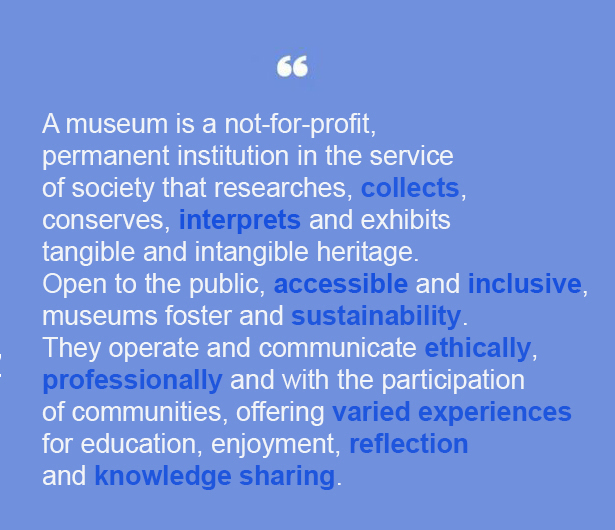In Prague, on 24 August 2022, the Extraordinary General Assembly of ICOM (International Council of Museums) has approved the proposal for the new Museum definition. The vote is the culmination of an 18-month participatory process that involved hundreds of museum professionals from 126 National Committees around the world. Following the adoption, the new ICOM museum definition is:
“A museum is a not-for-profit, permanent institution in the service of society that researches, collects, conserves, interprets and exhibits tangible and intangible heritage. Open to the public, accessible and inclusive, museums foster diversity and sustainability. They operate and communicate ethically, professionally and with the participation of communities, offering varied experiences for education, enjoyment, reflection and knowledge sharing.”

This new definition includes terms from the old definition and new ones (in bold) that have been proposed and approved by the majority of committee members. It is also aligned with some of the major changes in the role of museums, recognizing the importance of inclusion, community participation and sustainability. During the Ordinary General Assembly, a new President and Executive Board were also elected. The new Board will meet in due course to establish the next steps for the implementation and adoption of the new definition, in collaboration with the ICOM Committee for the Definition of Museums, ICOM Define.
As with the process of revising the Museum definition, the inclusion, the transparency and the participation will remain at the heart of this new stage.
For more information: ICOM approves a new museum definition
